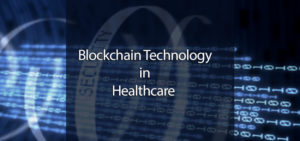
Key Management Group
According to a Sept 2017 article in MIT Technology Review, there are 26 different electronic medical records systems used in the city of Boston, each with its own language for representing and sharing data. Critical information is often scattered across multiple facilities, and sometimes it isn’t accessible when it is needed most—a situation that plays out every day around the U.S., costing money and sometimes even lives. “But it’s also a problem that looks tailor-made for a blockchain to solve”, says John Halamka, chief information officer at Beth Israel Deaconess Medical Center in Boston.
Blockchain technology is a permanent record of online transactions or exchanges. It emerged in 2009 as the foundation for trading the digital currency bitcoin (Becker HIT Oct 2016.) Healthcare professionals are becoming excited about blockchain technology and see it as a way to streamline the sharing of medical records while protecting sensitive data from hackers, and giving patients more control over their information. But don’t look for this to happen overnight as it will require buy in and infrastructure work from many technology and healthcare organizations.
A May 2017 article in Forbes noted that there are five blockchain-based healthcare uses that are opportunities. They are:
Clinical Health Data Exchange and Interoperability: Blockchain-enabled health IT systems can provide technological solutions to many challenges, including health data interoperability, integrity and security.
Claims Adjudication and Billing Management: An estimated 5-10% of healthcare costs are fraudulent, resulting from excessive billing or billing for services not performed. In 2016, Medicare fraud caused around $30 million in losses. Blockchain-based systems can provide solutions for minimizing these medical billing-related frauds.
Drug Supply Chain Integrity and Provenance: Based on industry estimates, pharmaceutical companies lose an estimated $200 billion annually due to counterfeit drugs globally. About 30% of drugs sold in developing countries are considered to be counterfeits. A blockchain-based system could ensure a chain-of-custody log, and tracking each step of the supply chain at the individual drug/product.
Pharma Clinical Trials and Population Health Research: It is estimated that 50% of clinical trials go unreported, and investigators don’t share their study results (e.g. nearly 90% of trials on ClinicalTrials.gov lack results). This creates crucial safety issues for patients and knowledge gaps for healthcare policymakers. Blockchain-enabled, time-stamped immutable records of clinical trials, protocols and results could potentially address the issues of outcome switching, data snooping and selective reporting.
Cyber Security and Healthcare IoT: According to the Protenus Breach Barometer report, (snapshot of disclosed breaches impacting healthcare, with data compiled from DataBreaches.net) there were a total of 450 health data breaches in 2016, affecting over 27 million patients. About 43% of these breaches were insider-caused. Blockchain-enabled solutions have the potential to bridge the gaps of device data interoperability while ensuring security, privacy and reliability.
Reenita Das , Contributor for Forbes astutely states, “the industry needs to focus on establishing blockchain consortia to foster ecosystem partnerships and create standards for future implementation on a large scale across healthcare use cases. The Hyperledger Foundation, an open-source global collaborative effort created to advance cross-industry blockchain technologies, is one great example among many developing small blockchain consortia models in the healthcare space.” And “the concept of blockchain technology will not act as a magic bullet…rather, it will be an evolutionary journey for blockchain-based healthcare systems or applications, where trust and governance within a blockchain network or consortium will be the critical success factors for implementation.”
